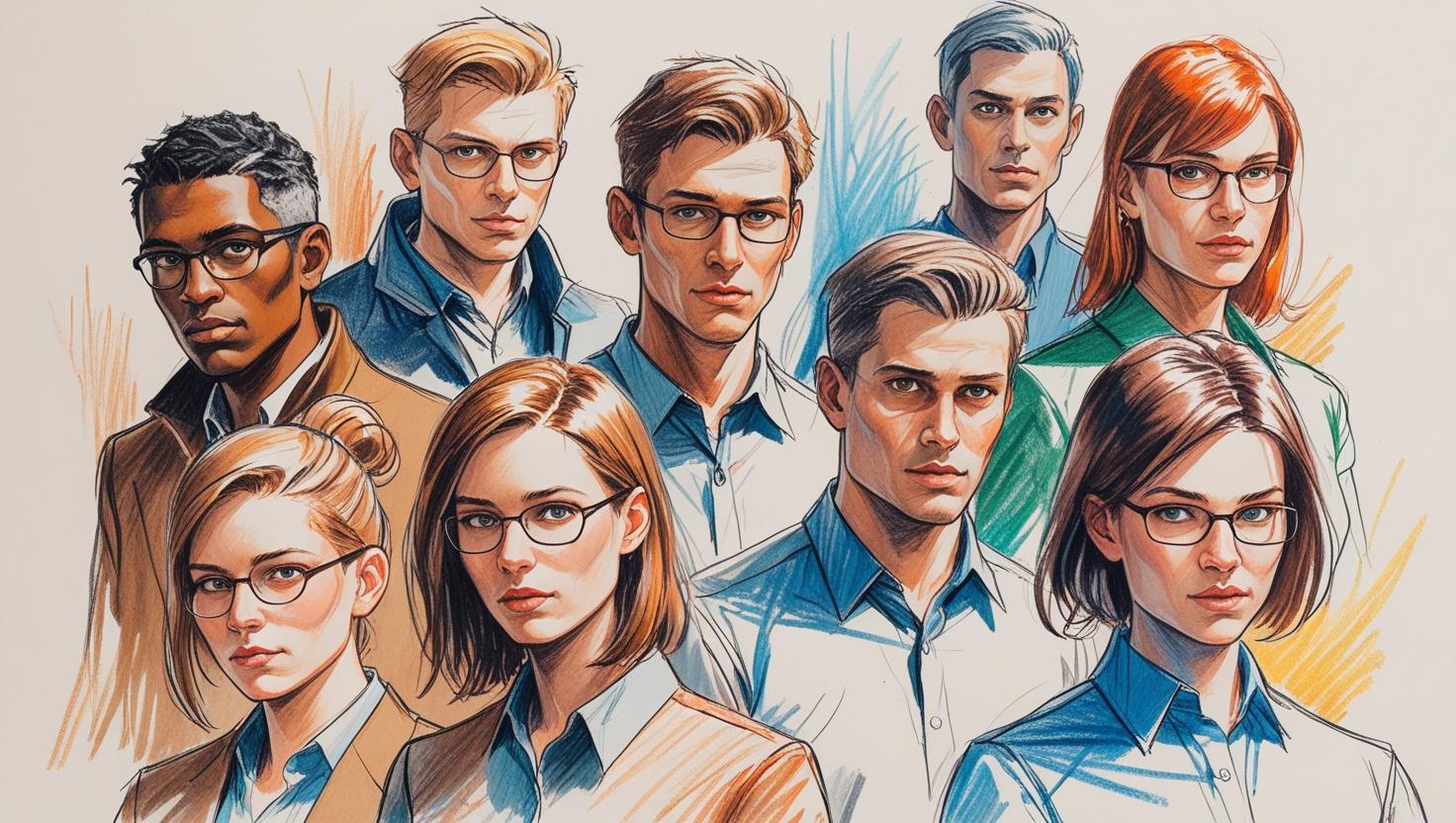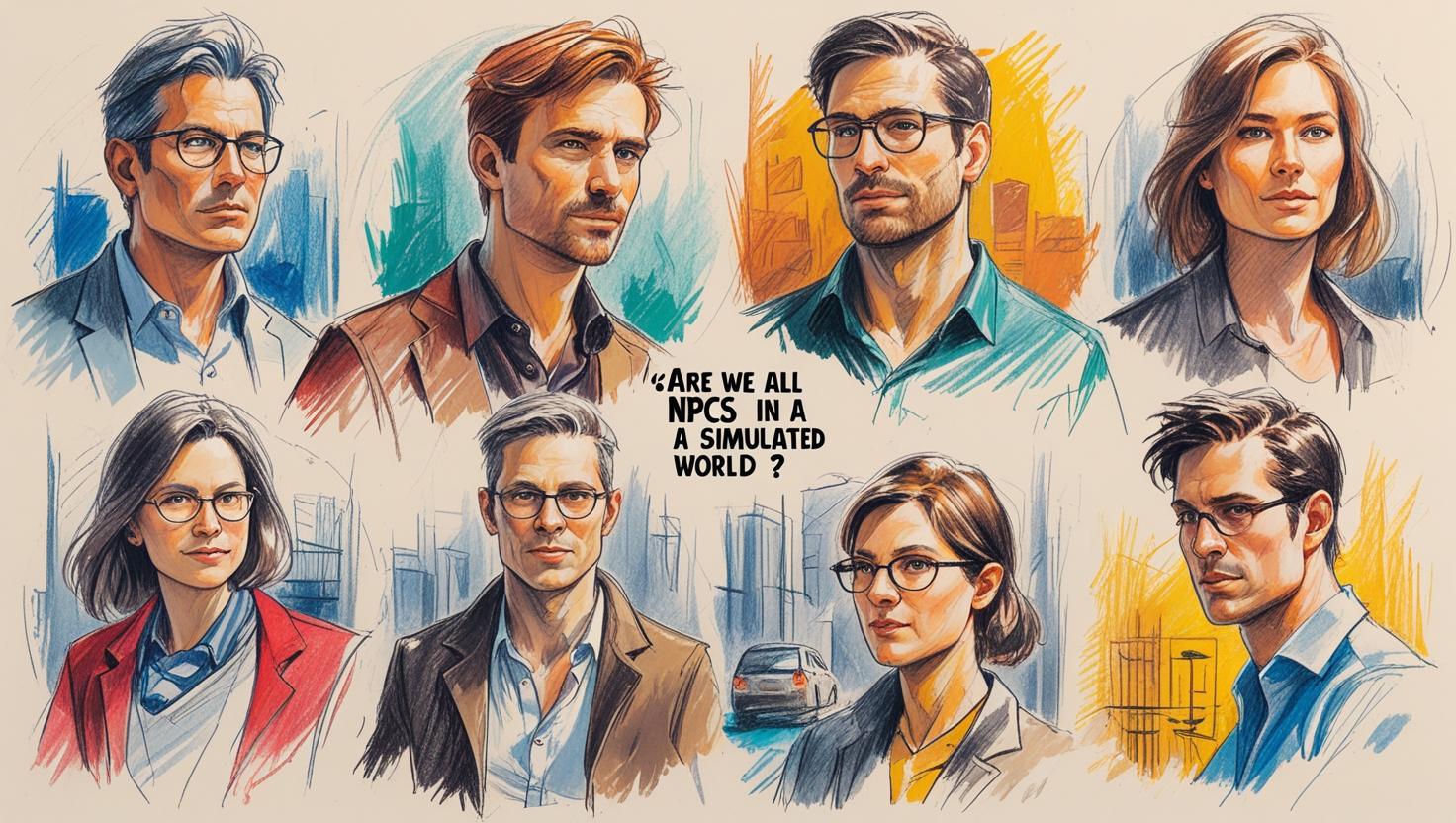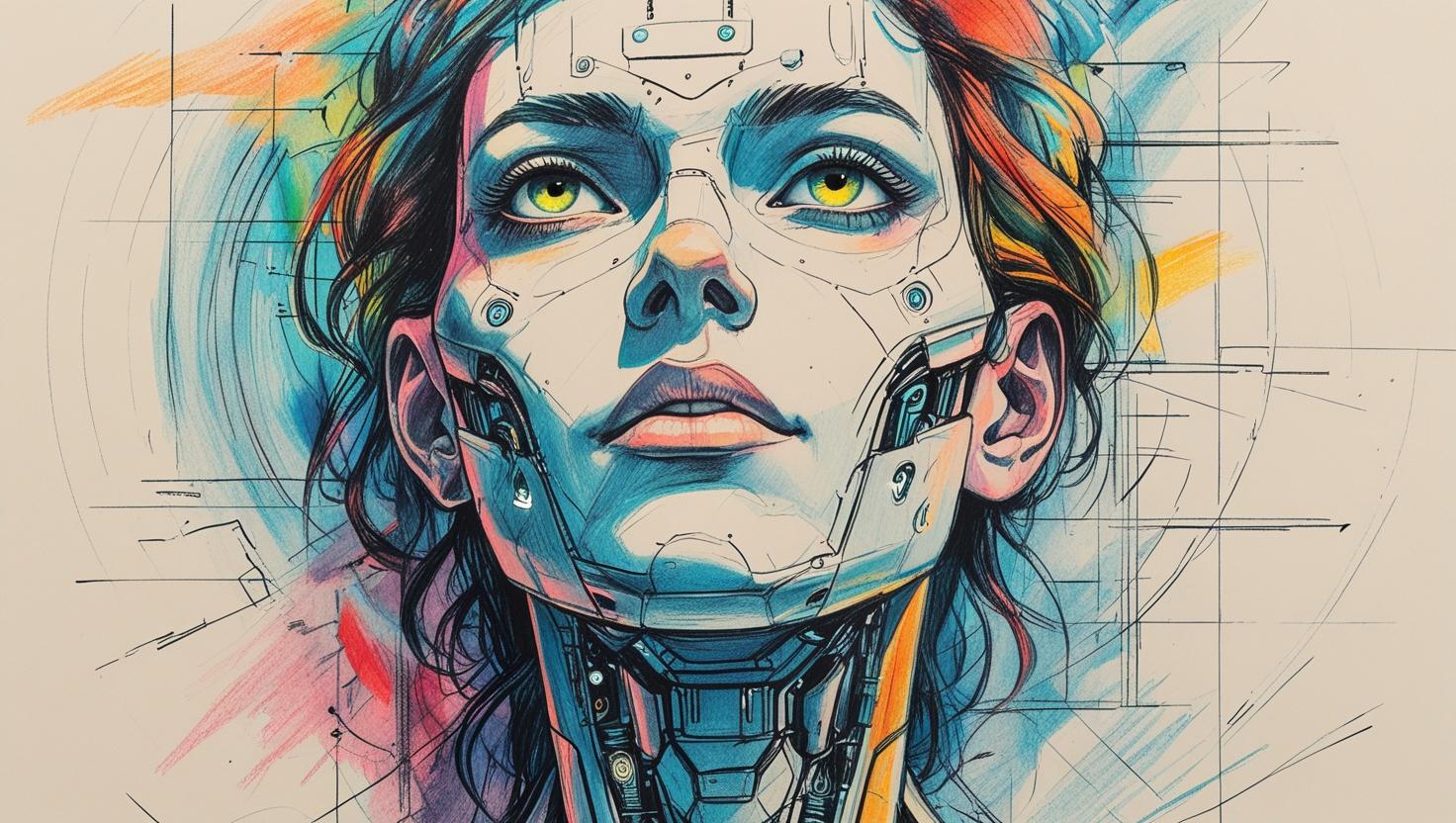Are We All NPCs in a Simulated World?

The simulation theory, which posits that the reality we perceive is nothing more than an advanced computer simulation, is gaining popularity and interest among scientists and in popular culture. One of the fascinating aspects of this theory is the question of whether we are all non-playable characters (NPCs) in this simulation. Let’s examine the arguments that support this hypothesis.
Technological Advancement
One of the strongest arguments for the simulation theory is the rapid technological advancement. Developments in artificial intelligence, virtual reality, and computer simulations are leading to the possibility of creating incredibly realistic virtual worlds. If we assume that human civilization will continue to develop at this rate, at some point, it will become possible to create simulations indistinguishable from reality. This opens the door to the possibility that such a simulation has already been created, and we are part of it.

Lack of Evidence for Reality's Existence
Another argument is the lack of irrefutable evidence for the existence of a real world beyond our senses. Everything we perceive results from the interpretation of signals processed by our brain. If these signals were generated by an advanced simulation, we would have no way of discovering it. In this light, our existence as NPCs would be logical, as our actions and decisions could be programmed or controlled by "players" or the creators of the simulation.
Subjectivity and Perception Limitations
Human perception of reality is subjective and limited. We cannot see the entire spectrum of light or hear all sounds. Our senses are limited to certain ranges, suggesting they could be designed to function in a simulated environment. The fact that different people can perceive the same situation differently also indicates the possibility of diverse "scripts" for each character, a characteristic of NPCs in computer games.

Laws of Physics as Code
The laws of physics governing our universe can be viewed as a set of rules similar to code in a computer game. They are incredibly precise and operate predictably, which may suggest they are part of a programmed system. If reality is a simulation, these laws might simply be algorithms managing its functioning.
Conclusion
While the simulation theory and the concept that we are all NPCs may seem controversial and hard to accept, there are many intriguing arguments supporting this hypothesis. Technological advancement, the subjectivity of perception, and comparisons to computer games open the possibility that our world is more complex and mysterious than it might seem. Regardless of whether we are part of a simulation or not, it is worth reflecting on the nature of our reality and deepening our understanding of our place in it.